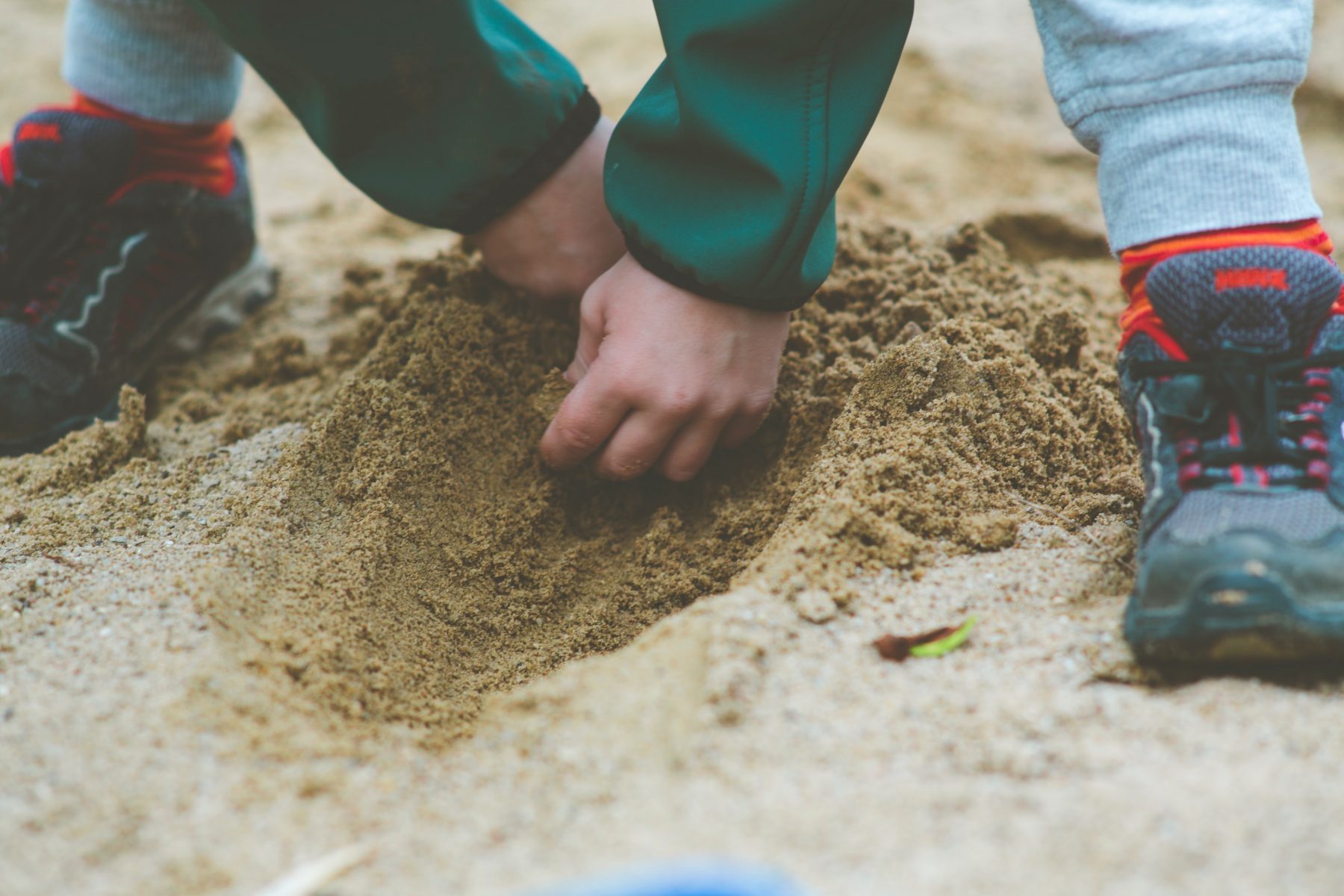Educators are holding back in the outdoor environment. Here’s why

Hands-on indoors, hands-off outdoors. Sound familiar? I often notice the difference between educator–child interactions in indoor and outdoor environments. Skilled, intentional educators hold back from engaging with children outdoors.
After observing this trend at a service, the team and I began to reflect. Educators shared popular ideas about children having ‘free play’ and a chance for creativity and spontaneous activity. Some educators saw their main role as supervisor in the outdoor environment. I’m not convinced.
The University of Melbourne’s longitudinal study (E4Kids) found that educator engagement and interaction is one of the key factors in providing quality education and care for young children. Why shouldn’t that engagement extend to the outdoor environment too? In fact, ACECQA says that ‘educators should be purposeful and intentional in planning quality experiences in the outdoor environment and maximise opportunities for learning and development.’
The team continued to reflect. After digging a little deeper, two main barriers emerged:
A lack of resources and planning leaves educators with fewer options
One educator said she found it difficult to engage in the outdoors as there was not a lot thought put into setting up the space. Another felt the outdoor space lacked the same resourcing as the indoor space: ‘We need more resources to engage the children…sometimes it feels like the sandpit is the only option.’
The space is uncomfortable for adults
The team reflected that while the indoor environment had appropriate-sized furniture, there was nowhere for adults to sit down in the outdoors. One educator said that she was put off engaging in the sandpit with children – especially in the colder months – because she wasn’t comfortable sitting in the sand. This educator often ended up watching the children rather than playing with them.
Some educators are okay sitting in the sandpit with the children. But as someone who works in early childhood and also has a physical disability, these conversations made me reflect on our inclusive practices – not just for the children and families we work with – but for the educators who work in the environment every day. Do we need to more deeply consider the needs and differences of our educators and design outdoor environments that will support them to engage more freely with children?
Are you critical of your role in the outdoor environment?
The team in question was open, honest and critical in their reflection on their practice in the outdoor space, which puts them in a position to begin taking action. I encourage your team to critically reflect on their practices in the outdoor space too.
Ask each of your team members to write down an honest account of what they feel their role is outdoors. At a staff meeting, reflect on the space as a team. Ask yourselves:
- How do adults interact with the space?
- Is the space inclusive for children, families and educators? (E.g. are there different levels,
- stairs, rails and comfortable, adult-appropriate seating structures?)
- Is equal planning time given to the outdoors?
- Is the outdoor space adequately resourced?
- What additional resources could the outdoor space benefit from?
Given the importance of child–educator interactions, we should all be working towards creating a space where educators can come together with children and delight in the wonder and excitement that can be found outdoors.
This article has been re-published from the Winter 2020 edition of Roundtable magazine. The original article will be made available on the archive section of the CCC website, and can be accessed here in future.
The Community Child Care Association offers courses and professional development to support services to create fresh indoor/outdoor set-ups that are cost-effective and make clear links to the frameworks.
For more information, please visit their website here, or call (03) 9486 3455
Popular

Policy
Practice
Quality
Provider
Research
Safety starts with supervision: responding to real risks in ECEC
2025-07-07 10:30:58
by Fiona Alston

Policy
Provider
Practice
Quality
Jay Weatherill appointed to co-lead urgent review into childcare safety in Victoria
2025-07-07 07:24:04
by Fiona Alston

Practice
Provider
Quality
Research
Workforce
New activity booklet supports everyday conversations to keep children safe
2025-07-10 09:00:16
by Fiona Alston










